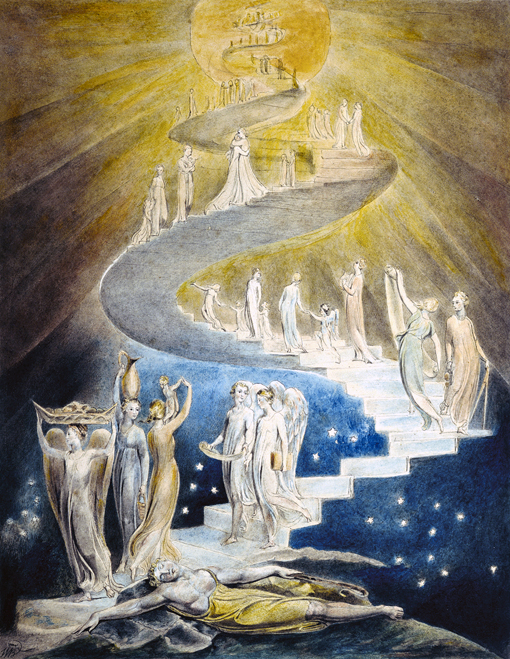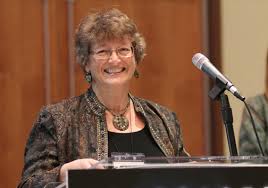Soul searching

Turning to Spirituality Series
Jewish Family Education with Candace R. Kwiatek, The Dayton Jewish Observer
Soul mate. Lost soul. Good for the soul. Sell one’s soul. Despite today’s rampant secularism, there’s a lot of “soul searching” going on in science, religion, philosophy, and daily life.
Google the word “soul” and you’ll find upward of a billion results. It’s not a modern notion, however. The soul appears in the first book of the Bible and is found in the oldest Jewish prayer, the Shema: “You shall love the Lord your God with all your heart, with all your soul, and with all your might.”
So what is the soul? According to various Bible dictionaries, the soul is a nonphysical entity separable from our physical body, which is the animating principle of life.
It’s the center of emotional-intellectual-moral activity, the spiritual and immortal substance in the human, the essence of humanness, and a Divine essence of humans inseparably bound to God.
With its emphasis on the material world, science has traditionally dismissed these notions of the soul as figments of the spiritual realm or reduced it to a psychological construct that helps shape our perception and understanding of the world, notes the cutting-edge scientist Dr. Robert Lanza. After all, “a soul has never been seen under an electron microscope, nor spun in the laboratory in a test tube or ultra-centrifuge.”

At best, the notion of “the soul” has been relegated to neuroscience, where the “soul experience” is interpreted as the result of physical and chemical processes in the brain.
Still, science has yet to explain consciousness, why we have subjective experience, or why we have a sense of the self.
Emerging scientific theories by Lanza and others, including a new approach known as biocentrism, are starting to seriously challenge the existing physical-only models of reality.
Judaism’s understanding of the soul unites science and religion in many respects through its contextual use of three separate words for the soul: nefesh (rest), ruach (wind), and neshamah (breath).
From nafash, meaning rest, the nefesh is the animating life-force of all living creatures (humans and animals).
In the realm of neuroscience, with its foundations in chemistry and physics, the nefesh is the “breath of life” responding to the body’s needs, keeping the material body working and the creature alive until the moment of cessation.
More in the realm of modern psychology than neuroscience, ruach is the Divine animation of all creatures: spirit, personality, feelings, creativity, insight, and Divine inspiration.
These soul stirrings are fleeting like the wind (ruach), and upon death, the author of Ecclesiastes concludes, “the ruach returns to God who gave it.”
It is the neshama, breath, that separates theology from science.
Breathed into the human at Creation, the neshama is the spiritual existence that pulls the human toward the Divine, toward moral behavior and self-improvement, and toward a purposeful life in the image of God. The neshamah is eternal.
Jewish teachings describe the body and soul as separate yet indivisible partners acting together to form one’s inner identity, to pursue a meaningful purpose, and to do the holy work of repairing the world.
Chasidic scholar Rabbi Yanki Tauber writes, “Without the soul, the body is like a light bulb without electricity, a computer without the software, a space suit with no astronaut inside.”
British teens apparently concur. In a recent study, more than half of those surveyed indicated a belief that humans have souls. Researcher Berry Billingsley explains, “Teenagers do not feel that science is enough to explain to them what it means to be a person.”
“A soul is not just the engine of life,” Tauber continues. “It also embodies the why of a thing’s existence, its meaning and purpose… Each soul is the expression of God’s intent and vision in creating that particular being.”
If so, what’s the access code? How do you find out your soul’s personal mission? What are the signs that you’re headed in the right direction — or not?
In his book, Toward A Meaningful Life: The Life and Teachings of the Rebbe Menachem Mendel Schneerson, Rabbi Simon Jacobson relates the following story: “A man visiting the Rebbe complained of a lack of meaningfulness in his life. Yes, he had a successful career and healthy family, but at the end of the day, he felt lonely and empty. ‘Do you ever devote time to your soul?’ the Rebbe asked him.”
Rabbi Naomi Levy, author of Einstein and the Rabbi: Searching for the Soul, encourages taking a soulfie, “a daily attempt to meet our souls…to get to know our own true essence.”
She encourages exploration of seven time-tested ways for raising the volume of your soul’s voice: meditation, music, food, prayer, learning, nature, and Shabbat. Find the one that works for you and stick with it. Then heed the voice that you hear.
“Man can never be happy if he does not nourish his soul as he does his body,” Schneerson cautioned. “When the soul is starved for nourishment, it lets us know with feelings of emptiness, anxiety, or yearning.”
The body and soul are indispensable partners for doing life’s sacred work.
Start or enhance your journey of self-discovery and purpose with some soul-searching.
Literature to share
Twenty-Six Seconds: A Personal History of the Zapruder Film by Alexandra Zapruder. This extraordinary nonfiction work weaves together the story of a family with history, culture, law, and journalism. An amateur photographer, the author’s grandfather filmed the only record of President Kennedy’s assassination, just yards in front of him. His six feet of 8mm film became the subject of extensive controversy, family secrecy, and conspiracy theories. Zapruder’s engaging book raises as many questions as it answers.
Dreidels on the Brain by Joel ben Izzy. Finally! A modern, funny, unapologetically Jewish, and believable coming-of-age story for the middle school set. Family relationships, life’s purpose, the source of happiness, the meaning of morality: no topic is off-limits for the narrator, a delightful kid you’ll wish lived down the block. Don’t miss out on this one — perfect for Jewish and non-Jewish youngsters.
To read the complete December 2017 Dayton Jewish Observer, click here.


